Lung Cancer Treatment Cost In Malaysia
Unlock Exclusive Discount : Your Gateway to Premium Healthcare with Medsurge India Health Value Card.

Unlock Exclusive Discount : Your Gateway to Premium Healthcare with Medsurge India Health Value Card.


One type of cancer that starts in the lungs is lung cancer. Your lungs are two pliable organs located in your chest that allow you to breathe in oxygen and exhaust carbon dioxide. Lung cancer can affect persons who have never smoked, but smokers are at a higher risk than nonsmokers. The quantity and frequency of cigarettes you’ve smoked are related to your chance of developing lung cancer. Even after years of smoking, you can greatly lower your risk of developing lung cancer by quitting. The correct medical facilities and a well-planned strategy are available for Lung cancer treatment in Malaysia Cancer patients in Malaysia undergo treatment with MRI and other imaging techniques that are risk-free, pinpoint the site of the tumor, and can be reasonably precise in order to detect the type of tumor/cancer and provide some information on the prognosis. The condition is treated using a variety of methods, such as surgery and chemotherapy.
The cost of Lung cancer treatment in Malaysia is significantly less expensive than it is in countries like the US, the UK, Germany, and others. Cancer treatments can be very expensive, but picking a top medical care site can help overseas patients save a lot of money. Some of these locations are Thailand, India, Turkey, Dubai, and others.
Cancer is a condition in which the body’s cells proliferate unchecked. “Lung cancer” is the name for cancer that first appears in the lungs. In addition to lymph nodes and other body organs including the brain, lung cancer can also start in the lungs. Lung cancer can potentially spread from other organs. Metastases are cancer cells that have spread from one organ to another.
Based on how lung cancer cells look under a microscope, doctors classify the disease into two main categories. Depending on the primary form of lung cancer you have, your doctor will decide how to proceed with treatment.
The following are the two primary types of Lung Cancer:
For several reasons, Malaysia is the best place to go for medical tourism. Malaysia’s medical tourism industry stands out because it is one of the few in the area where the government actively encourages it. As a result, rules and quality and safety standards for the business, particularly those governing medical services, have proven reassuring to visitors.
Know More – Cancer Treatment Cost in Malaysia
Depending on the type of lung cancer and how far it has spread, there are various treatment options. Surgery, chemotherapy, radiation therapy, targeted therapy, or a combination of these treatments may be used to treat non-small cell lung cancer patients. Chemotherapy and radiation therapy are frequently used in the treatment of people with small-cell lung cancer.
Various medical professions frequently collaborate to treat lung cancer in Malaysia. Pulmonologists are medical professionals that specialize in lung conditions. Doctors who perform procedures are known as surgeons. Chest, heart, and lung surgery is the area of expertise for thoracic surgeons. Oncologists are medical professionals who use medication to treat cancer. Radiation oncologists are medical professionals who use radiation to treat cancer.
Lung cancer treatment cost in Malaysia starts from 13,500 USD, In comparison to other countries, the cost of lung cancer treatment in Malaysia is much less as compared to other countries. Additionally, Malay Hospitals and Centers provide medical care and services of a quality and grade that rivals that of the top medical facilities in the world. Even after accounting for travel, lodging, and food costs thats why Thousands of patients from all over the world choose to come to Malaysia for medical care primarily for this reason.
Factors that Can Affect Lung Cancer Treatment Cost in Malaysia
Lung cancer treatment cost in Malaysia can depend on various factors such as:
Hospitals in Malaysia that treat cancer patients are renowned for their warmth and attentiveness to their needs. These hospitals are home to some of Malaysia's top oncologists who are experts in their areas. For an international patient, selecting a good hospital for treatment might be challenging. It is a crucial choice that needs to be made while keeping a number of things in mind, such as:
Medsurge India is a prestigious support system for patients looking for doctors, hospitals, and specialized treatments. We'll find the most suitable medical options for you. Regarding your medical issues, our team will give you a list of certified, reputable, and trusted doctors and hospitals. Additionally, we offer a treatment strategy that fits your budget. Apart, we assist patients with obtaining travel authorizations, medical visas, and a multitude of other things.
A: If you have larger lung cancer, your doctor may advise you to undergo chemotherapy or radiation therapy prior to surgery to shrink cancer. If there is a chance that cancer cells will be left behind after surgery or that your cancer will recur, your doctor may advise you to undergo chemotherapy or radiation therapy after surgery.
A: For cases detected while the disease is still localized, the five-year survival rate for lung cancer is 56%. (within the lungs). Only 16% of lung cancer cases, however, are diagnosed at an early stage. The five-year survival rate for distant tumors (tumors that have spread to other organs) is only 5%.
A: A stage 4 lung cancer diagnosis indicates that cancer has spread to other lungs or distant parts of the body. It is the most advanced stage of lung cancer. There is currently no cure, but certain treatments can help people live longer lives.
A: In general, lung cancer cells prefer the brain, bones, and adrenal glands, and small-cell neuroendocrine carcinomas and adenocarcinomas metastasize into the brain, whereas squamous cell carcinomas prefer the bones.
A: A squamous cell carcinoma, for example, takes approximately 8 years to reach a size of 30 mm when it is most commonly diagnosed, so by the time symptoms appear, the risk of metastasis is significant. When symptoms appear, patients frequently ignore them, further delaying diagnosis and treatment.

Medical Oncologist
Senior Consultant
18 years of experience
Pantai Hospital Ayer Keroh, Malacca
View Doctor
Medical Oncologist
Consultant
17 years of experience
Island Hospital Penang, Malaysia
View Doctor
Surgical Oncologist
Consultant
30 years of experience
Island Hospital Penang, Malaysia
View Doctor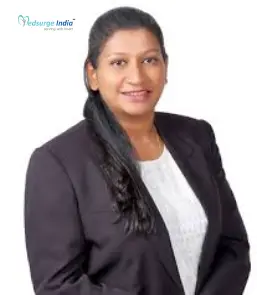
Radiation Oncologist
Consultant
20 years of experience
Gleneagles Hospital, Kuala Lumpur
View DoctorRadiation Oncologist
Consultant
22 years of experience
Gleneagles Hospital, Kuala Lumpur
View Doctor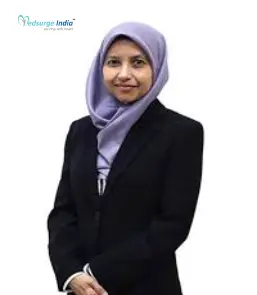
Medical Oncologist
Consultant
23 years of experience
Gleneagles Hospital, Kuala Lumpur
View Doctor
Medical Oncologist
Consultant
15 years of experience
Subang Jaya Medical Centre, Subang Jaya
View Doctor
Medical Oncologist
Consultant
10 years of experience
Sunway Medical Centre
View Doctor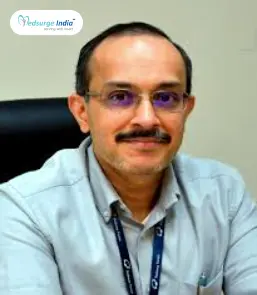
Medical Oncologist
Consultant
11 years of experience
Pantai Hospital Ayer Keroh, Malacca
View Doctor
Medical Oncologist
Consultant
15 years of experience
Sunway Medical Centre
View Doctor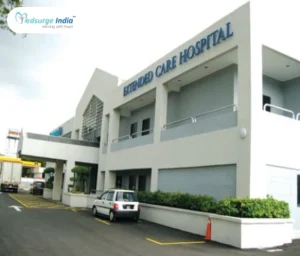
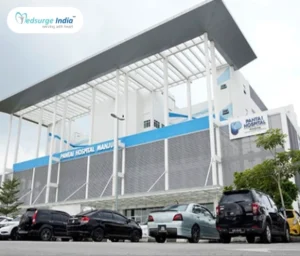
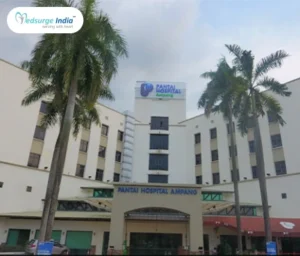
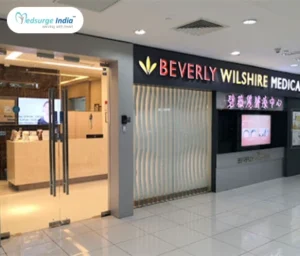
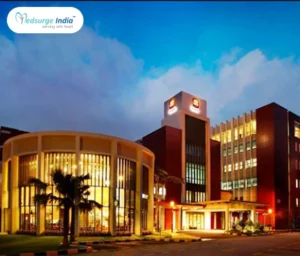
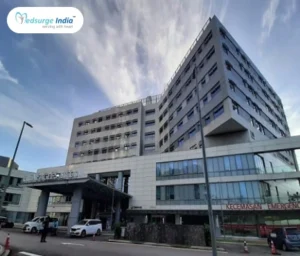
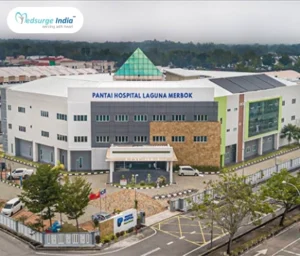
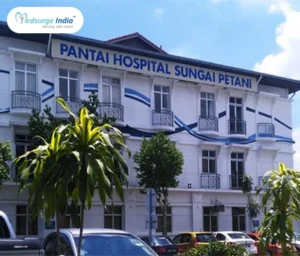

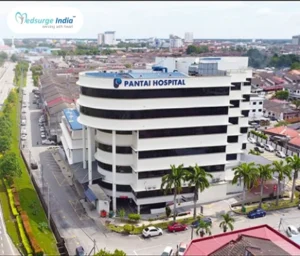
By using our site, you agree to our Terms and Conditions, Privacy Policy and Refund Policy. Medsurge India provides reliable healthcare information and treatment options to support informed decision-making. Our content is designed to support and complement the guidance of your treating doctor, helping you feel informed and confident throughout your healthcare journey. We also Accept International Payments.

Copyright © 2025 NSM ONLINE SOLUTIONS PRIVATE LIMITED. All rights reserved.